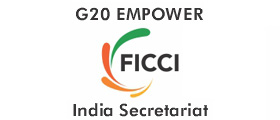Inspirational Stories - Japan
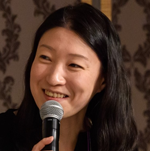
Tsukiko Tsukahara
I started my early-stage career at the Japanese government. I was interested in the development of society and economy, and I chose working as a government official to leverage my academic background in economics. After my business school, however, I became more interested in changing/ upgrading business models and organizations, which led to my career change. I established my fundamentals during my consulting firm career. I learned how diversity and inclusion mattered in creating innovative insights, experienced various working models after my own childbirths, and realized how Japanese society had economic potential if various underrepresented talents, including women, were fully leveraged.
That is why I launched Kaleidist, a DE&I specialized consulting company. I hoped to become the initiator of the “Kaleido=Beautiful shape” of individuals.
Since I launched the company, my business experience has dramatically expanded. I worked as the Sherpa for the Women 20 in 2019 when Japan was the chair country of the G20. This role allowed me to connect a number of handsome women leaders around the globe. Upon the launch of the G20 EMPOWER, I became one of the private sector representatives of Japan, which has been a wonderful source of the most updated knowledge about women’s empowerment while, of course, I myself have been a continuous resource to support this unique alliance.
I see great potential in women’s empowerment and DE&I space for many individuals and organizations, especially in Japan, to thrive and grow towards a more prosperous future.
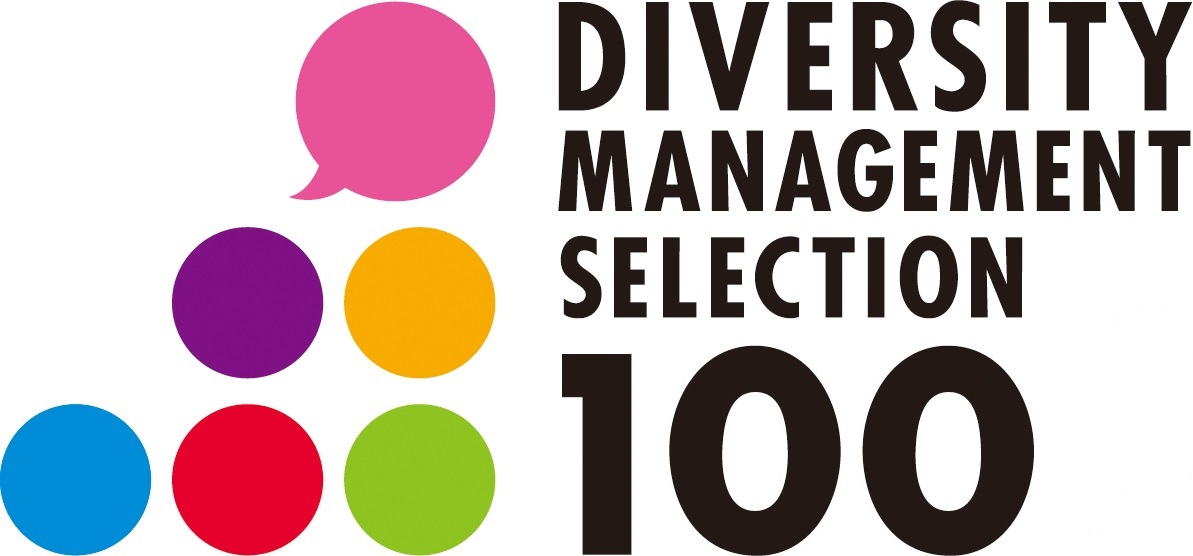
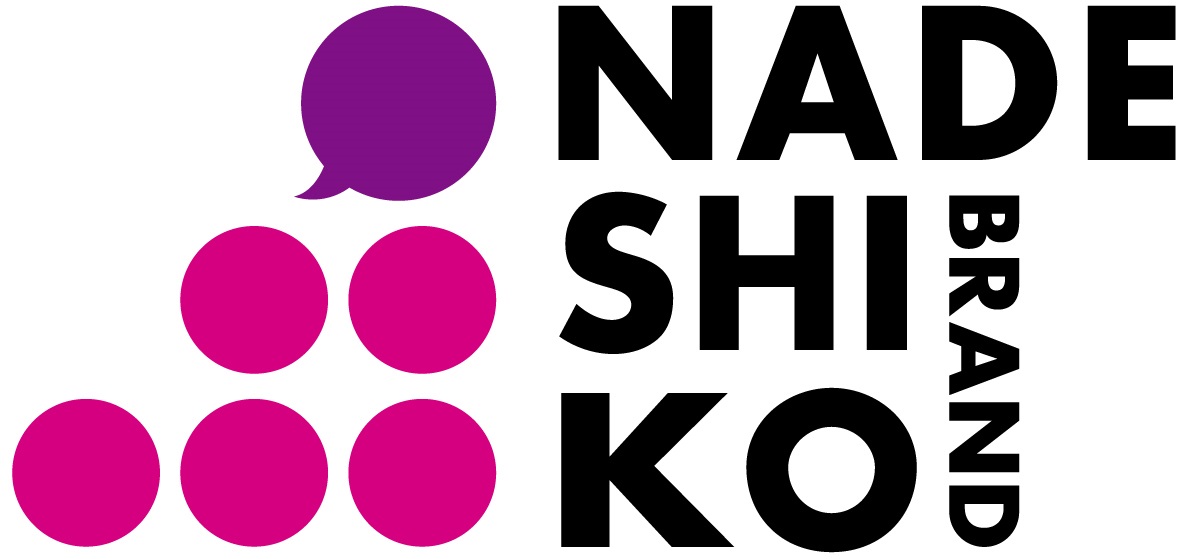
Nadeshiko+Diversity100
The Ministry of Economy, Trade and Industry, Government of Japan,
refers to “diversity management” as systems/practices focused on diversity and inclusion (D&I), including gender equality.
Since 2012, the Ministry of Economy, Trade and Industry (METI) and the Tokyo Stock Exchange (TSE) have jointly selected
TSE-listed companies that excel in promoting women's empowerment as attractive companies that emphasize the improvement of
corporate value in the medium and long term.
In 2023, the 11th round of the selection, METI and TSE renewed the selection method, with aim of selecting companies that
promote diversity, especially women's empowerment in conjunction with their management strategies, and promote the disclosure
of information on women's activities, in light of recent discussions on how companies should disclose non-financial
information including human capital information.
METI and TSE aim to accelerate those companies' efforts to promote women's empowerment by attracting investors' attention to their efforts.
According to the Ministry of Economy, Trade and Industry, management focused on diversity and inclusion (D&I),
including gender equality, is referred to as “diversity management.” It is defined as management that creates innovation and
leads to value creation by making the most of diverse human resources to provide opportunities for them to fulfill
their potential to the maximum extent. The Diversity Management 2.0 Action Guidelines have been developed to achieve
diversity management. The Guidelines set out seven actions that companies should take. They include top management
clearly defining a diversity policy, developing KPIs and a roadmap, and being responsible for leading the initiative.
Under this program, which is intended to increase companies that practice diversity management, 282 companies
(144 large companies and 138 small and medium-sized companies) that have successfully improved their corporate value
through diversity management have been commended and good practices of these companies have been disseminated.
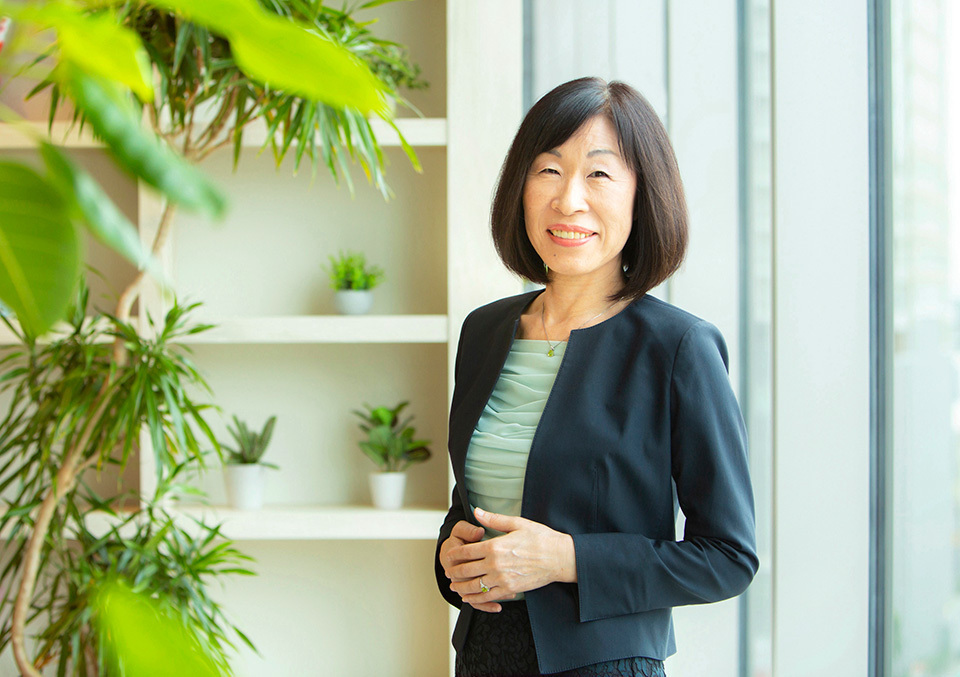
Happy Life & Happy Career
In my early days, I was curious about what other countries were like and decided to study in the US and UK.
I met my American husband in Japan, got married in Hawaii, and had two beautiful daughters. Back then In Japan, women were expected to leave their
jobs after getting married or having a baby. I was happy with my life but felt something was missing. I asked myself, “What do I really want to do?”
Then I realized that I wanted to have both a “happy life and a happy career.”
So, I went back to school to study business, started a part-time job as an intercultural consultant, then worked full-time in several global
companies. All this time, I was busy balancing my work and parenting but felt happy and fulfilled, supported by my husband, mother, and local
community. I was always energized by our daughters, even in tough days at work. Now, they are both working parents. My husband and I regularly
look after our three grandchildren. It is a lot of work, but they are such a joy of our lives.
I continue to work for the private sector and central and local governments, promoting gender equity and developing women leaders, which is my life work.
Over the past few decades, policies and infrastructure to support working parents have been much better established In Japan. I still meet women who think
that they have to choose family or career. I tell them “How about having both?”
It is possible to lead the life and career that you want. To make it happen, have a personal vision, work hard, keep learning,
gain support from others, and most importantly, enjoy what you do!

